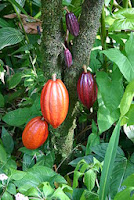 President John Mahama at his
inaugural address earlier in the year 2013 said he wanted Ghana to be a place
where economic opportunities are available to all citizens.
President John Mahama at his
inaugural address earlier in the year 2013 said he wanted Ghana to be a place
where economic opportunities are available to all citizens.
He promised to give off his best and
ensure his actions make a positive difference in the lives of Ghanaians. The
President wanted the private sector to be an ally in his quest to grow the
economy.
Economist,
Deodat Adenutsi told Luv Biz Report the President will be under pressure to
deliver on promises, stated that job creation, macroeconomic stability and
Ghana’s international relations within the global economy were some areas to
engage the attention of the President.
From
the service industry to manufacturers, the impact of the power cuts was felt
throughout 2013. Manufacturers were most worried as the erratic supply of
electricity did not only disrupt production but people had to invest in fuel
and maintenance to run their generators.
Fire outbreaks also wrecked havoc to
commercial and business activities. The Kumasi Central Market and Suame
light industrial area recorded major fire outbreaks, as valuable property worth
thousands of cedis is lost in the inferno.
Owners
of affected shops were devastated as most of them did not have insurance policies
covering their shops.
A
team of technical experts from the Netherlands was in the Country to help
artisans under the Suame Magazine Industrial Development Organization (SMIDO)
in Kumasi to improve their ability to the manufacture of vehicles.
 As
part of the project, a prototype vehicle – the SMATI Turtle 1 – was built at
the Suame magazine and showcased in Ghana and the Netherland.
As
part of the project, a prototype vehicle – the SMATI Turtle 1 – was built at
the Suame magazine and showcased in Ghana and the Netherland.
All
eyes will however be on the introduction of the vehicle that uses no fuel, no
oil, no water being developed by a Ghanaian innovator, Samuel Ampiah, at Suame
magazine.
He
will be pushing the frontiers of the current global automobile engineering
standards, when he unveils the new vehicle. The SMATI Magnetic A is expected by the first quarter of 2014.
Ghana’s drive to mobilize deposits from the unbanked population and encourage savings faced serious challenges from the activities of unscrupulous microfinance firms.
Some
of the microfinance firms collapsed as a result of poor risk and business
management. This led to widespread public apathy in depositing funds with
microfinance institutions.
 Banking
expert, Nana Otuo Acheampong advocated the establishment of a Financial Ombudsman
in the country to serve the needs of financial consumers.
Banking
expert, Nana Otuo Acheampong advocated the establishment of a Financial Ombudsman
in the country to serve the needs of financial consumers.
There
was an insurgence in illegal mining activities in 2013. Farmlands were
destroyed whilst water bodies and the environment were gravely polluted as a
result of illegal mining.
Interest
groups devised strategies to get tough to uproot galamseyers.
Ghana’s
economic growth slowed in the first two quarters of the year and deep into the
third quarter.
Financial
and economic analysts anticipated the successful adjudication of Ghana’s
electoral dispute would restore business and consumer confidence to speed up
recovery of the larger economy.
 However,
power rationing, coupled with the introduction of new
taxes impacted heavily on manufacturing and industrial production.
However,
power rationing, coupled with the introduction of new
taxes impacted heavily on manufacturing and industrial production.
There was a 20% hike in petroleum
prices and transport fares in September and from October utility tariffs went
up – 78.9% for electricity and 52% for water.
These were expected to raise the
cost of living, against the 17% increase in the National Daily
Minimum Wage announced in September.
Labour
unions and associations threatened to hit the streets in a demonstration
against hikes in utility prices. Their agitations resulted in a downward review
of electricity tariff.
Crude oil, Ghana’s second biggest
export earner, generated some revenue to sustain the economy, but targets for
cocoa sale were unstable and gold lost its shine prices on the international
market drop steadily.
 There were fears of business
collapse, employee redundancy and high unemployment – mining firms took steps
to downsize in order to contain the rising cost of production.
There were fears of business
collapse, employee redundancy and high unemployment – mining firms took steps
to downsize in order to contain the rising cost of production.
Hundreds of mineworkers have lost
their jobs in 2013.
Yet, the some foreign investors,
including the Australian Trade Commission, saw Ghana as a destination of choice
for many of its companies, identifying investments in natural resources,
agribusiness and education as the main opportunity areas for investors.
2013 was also rife with the debate of growing and eating genetically modified crops in Ghana. But at year end, scientists at the Crops Research Institute of the CSIR harvested seeds of the first-ever GM crop to be planted in Ghana – the Nitrogen Use Efficient (NUE) rice.
2013 was also rife with the debate of growing and eating genetically modified crops in Ghana. But at year end, scientists at the Crops Research Institute of the CSIR harvested seeds of the first-ever GM crop to be planted in Ghana – the Nitrogen Use Efficient (NUE) rice.
The trails were conducting on confined
fields in the Ashanti region.
 Interest
groups in Ghana’s cocoa production also explored climate smart agricultural
practices for farmers to mitigate and cope with the impact of climate change on
production.
Interest
groups in Ghana’s cocoa production also explored climate smart agricultural
practices for farmers to mitigate and cope with the impact of climate change on
production.
Going
into 2014, interest groups would be watchful for government’s programs to
address the rising budget deficit.
Already,
the Public Utilities Regulatory Commission (PURC) has hinted of an increase in
electricity and water tariffs from January 1, as the Automatic Adjustment
Formula (AAF) for review of tariffs kicks in.
Businesses
and other economic actors will keenly observe how the 2014 Budget will lead to
a productive and prosperous New Year 2014.





.JPG)



































